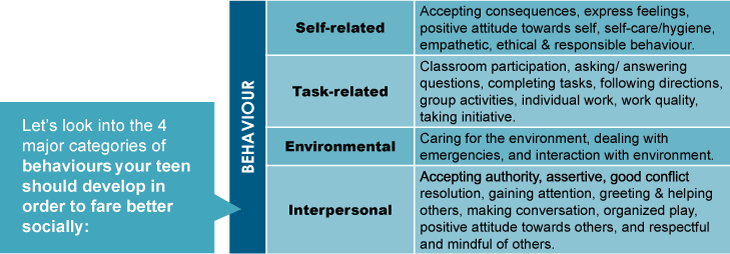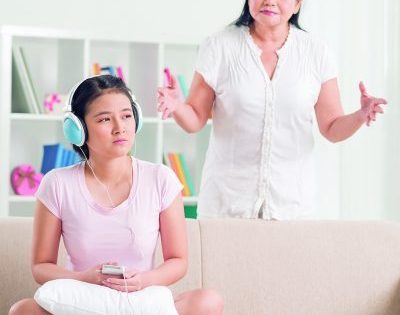Social skills are learned abilities necessary to get along with others and to create and maintain satisfying relationships. For teens (and adults), their social circle may include parents, relatives, peers, teachers, carers, and society in general. There are many advantages to having good social skills as teens, these include:
- having better, more trustworthy relationships with peers, parents, co-workers, etc
- better performance at school
- open more career, business or life opportunities and possibilities via network of acquaintances
- increased self-esteem, good problem-solving, effective stress management and better overall well-being
- as they mature, adolescents’ social skills are called upon to form and maintain relationships

As parents, it’s your responsibility to prepare and equip your child with the necessary tools he/she needs to positively act and react in social situations. For parents looking to harness their child’s social skill potential, these simple but effective at-home DIYs may help:
Communication & expression of feelings
- Ask about their day everyday! Show some interest and provide input to extend conversation – let them drive the talk.
- Discuss the need for social skills; your teen needs to understand that social skills are important.
- Most parents start off their conversation with their children beginning with a question. Try starting a conversation by talking about something that interests you instead and see where that leads.
- Ask them for feedback more often and if you have questions for them, keep them open-ended.
Being part of the group/participation
Include your teen in family discussions (i.e. where to go for holidays), decision-making (i.e. what school extra-curricular activity to choose) or appoint them daily house chores the family can’t do without (i.e. taking out the trash, dish or cloth washing).
Showing initiative
- Encourage new found interests, allow mistakes, and make them think critically for answers instead of spoon-feeding it to them.
- Encourage them to do simple things on their own.

Caring for self & others
- Morals, ethics and etiquette lead to the ability to empathize, appreciate and respect others. Being a role model is the best way to teach your teen about self-awareness (i.e. hygiene or body image) and social courtesy.
- Role-play with them by acting out social interactions that would typically be encountered in an unstructured everyday situation.
Assertiveness
- Practice controlling their intonation and teach them confident body stances.
- Know when it is appropriate to speak out or stand up for him/her -self and to handle confrontation properly without being violent or derogatory.
Open-mindedness & broader experience
Expose your child to new things, new places, new people, and new activities capable of growing their interests with their age. They’ll have more to talk about too!
An educational contribution by Malaysian Association for Adolescent Health.







Comments